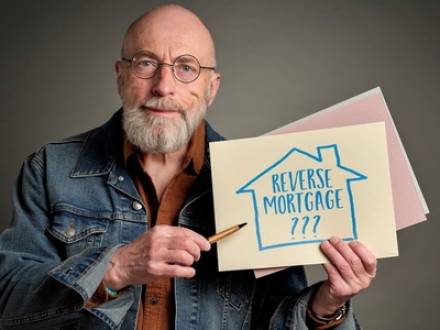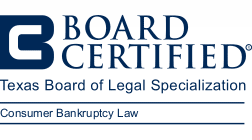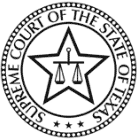What Happens to a Texas Reverse Mortgage in Bankruptcy?
 Reverse mortgages are becoming increasingly common among older Texans seeking to tap into their home equity without incurring a monthly debt obligation. Yet when financial trouble hits, the question arises: what happens to a reverse mortgage in a bankruptcy filing? Although Texas has some of the strongest bankruptcy homestead exemptions in the country, it is essential to know how reverse mortgages are handled during Chapter 7 or Chapter 13 bankruptcy.
Reverse mortgages are becoming increasingly common among older Texans seeking to tap into their home equity without incurring a monthly debt obligation. Yet when financial trouble hits, the question arises: what happens to a reverse mortgage in a bankruptcy filing? Although Texas has some of the strongest bankruptcy homestead exemptions in the country, it is essential to know how reverse mortgages are handled during Chapter 7 or Chapter 13 bankruptcy.
This is especially true when the homeowner is behind on taxes, insurance, or occupancy requirements. Seniors and their heirs must understand how bankruptcy impacts a reverse mortgage. A Brazoria County, TX bankruptcy lawyer can help you determine how bankruptcy will affect your reverse mortgage and guide you through the process.
How Do Texas Reverse Mortgages Work?
Reverse mortgages are available to borrowers who are 62 years or older and occupy the home as their primary residence. There is no monthly mortgage payment required; the loan balance grows over time, and the loan becomes due when the last surviving borrower dies, sells the home, or permanently moves out. To keep the reverse mortgage in good standing, borrowers must keep property taxes and homeowner’s insurance current and maintain the house to keep its value. The lender can call the loan due if these obligations lapse. Texas Constitution Article XVI Section 50 governs all home equity and reverse mortgage rules.
Are Reverse Mortgages Dischargeable in Bankruptcy?
While the personal liability on the loan may be discharged in bankruptcy, the lien survives, allowing the lender to foreclose on the property. Reverse mortgages "behave" like standard, secured debts in bankruptcy, but with some unique triggers. If the debtor files for Chapter 7 bankruptcy, the Texas homestead exemption protects the property. The Texas homestead exemption is extremely generous, so a trustee cannot sell a homestead used as a primary residence.
That being said, Chapter 7 bankruptcy does not stop foreclosure forever, does not eliminate the loan balance, and does not cure missed taxes or insurance payments. The lender may still foreclose if the borrower has not paid taxes or insurance, has moved out, has been placed in long-term care, or has passed away.
If all obligations are current, the reverse mortgage continues unaffected, although monthly statements may temporarily stop due to the automatic stay. In short, Chapter 7 bankruptcy protects the home from unsecured creditors, does not fix delinquent obligations that triggered the default, and leaves the risk if the borrower is unable to pay taxes or insurance.
Chapter 13 bankruptcy offers some tools that Chapter 7 does not. Reverse mortgages generally cannot be modified or restructured, but Chapter 13 can help:
- Catch up on property taxes through the repayment plan
- Resolve HOA arrears that triggered loan default warnings
- Pay past-due insurance premiums
The automatic stay can halt pending reverse mortgage foreclosures, give debtors time to resolve delinquent obligations, and allow heirs to get financing after the borrower’s death. Because reverse mortgages do not require monthly payments, the plan will typically focus on other secured or priority debts. Chapter 13 bankruptcy is the best option to cure delinquent taxes or insurance, stops foreclosure while the plan is active, and allows debtors time to regain financial stability.
What if the Borrower No Longer Lives in the House?
Since the mortgage becomes due and payable upon the borrower's permanent departure from the home or death, bankruptcy cannot compel a lender to continue a reverse mortgage when the occupancy requirements are no longer met. Heirs are allowed to pay off the loan – usually at 95 percent of appraised value, sell the home, or surrender the home in bankruptcy.
Contact a Brazoria, TX Chapter 13 Bankruptcy Lawyer
A Texas reverse mortgage can definitely add another layer of challenges to a bankruptcy filing. While your home will likely be protected, the lender’s rights do not disappear. If you are considering filing for Chapter 7 or Chapter 13 bankruptcy, or if a reverse mortgage lender is threatening to call your loan due, a Brazoria County, TX Chapter 7 bankruptcy attorney from The Fealy Law Firm, PC can help. Attorney Fealy focuses on helping good people through hard times, assisting them in handling their finances and getting a fresh financial start. For a free consultation, call 713-526-5220.












